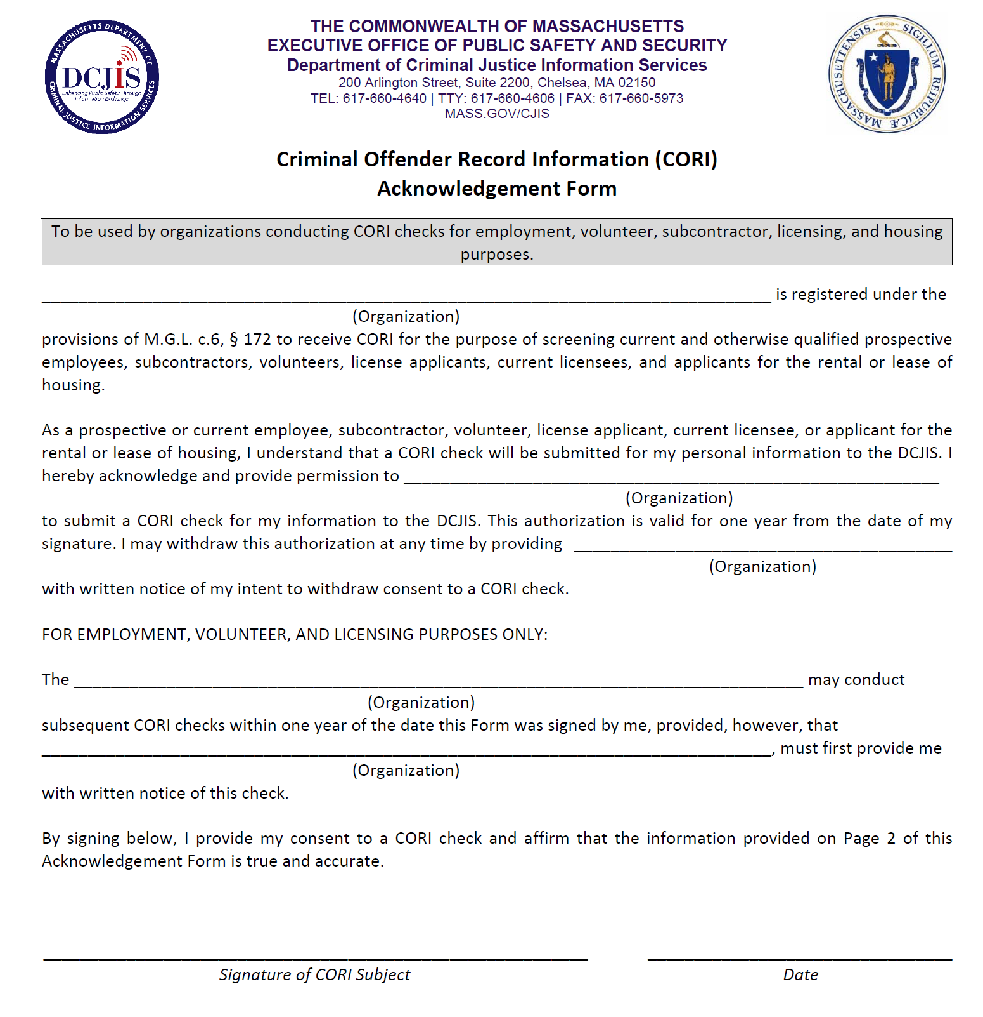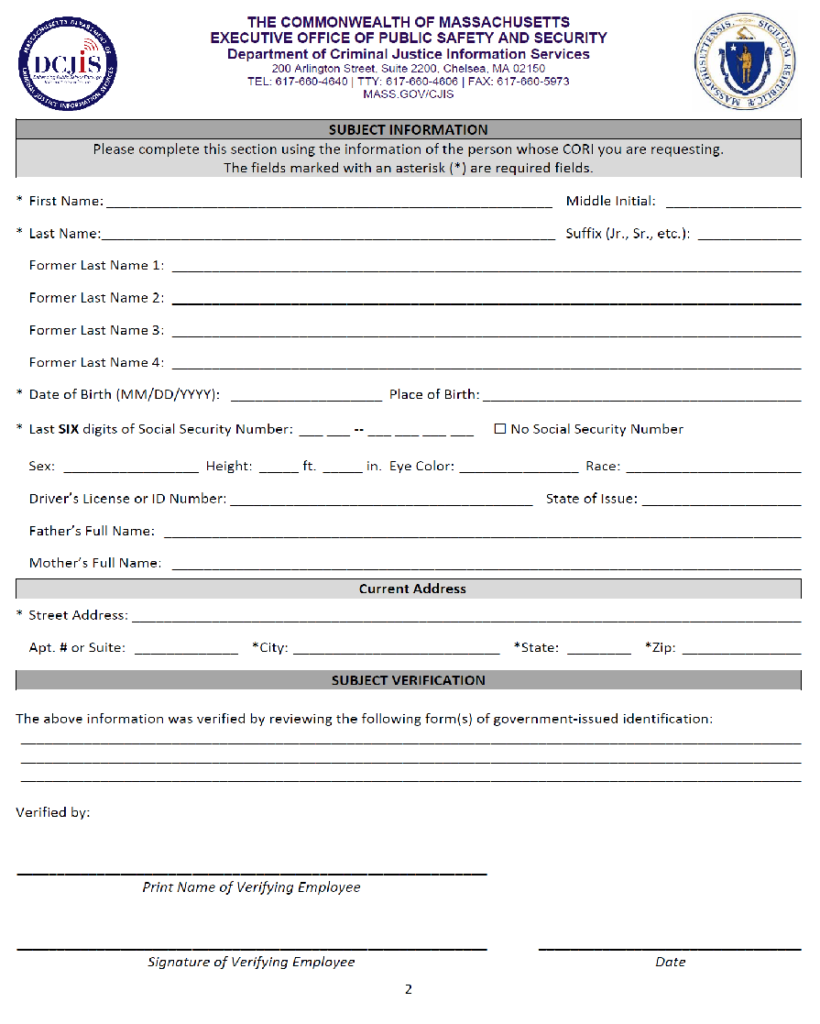Screening Toolbox: Internet, Social Media Search
Because the internet and social media are a rich source of information about prospective candidates, and social media is perceived as a forum in…
Home / Screening & Hiring / Screening Toolbox: Massachusetts Criminal Background Checks
Criminal background checks are an important tool in your screening and selection process—and you should ensure that you’re aware of any federal, state, or organizational requirements for background checks that pertain to your organization. While these checks are essential, they do not, by themselves, guarantee that sexual offenders will be identified, and can present significant limitations. Not all sex offenders have criminal records, and if they do, their criminal history may not include sexual offenses.
In Massachusetts, the acronym “CORI” stands for “Criminal Offender Record Information.” The term CORI is commonly used to refer to the specific criminal history information that employers, landlords, schools, and others can obtain directly from the Commonwealth via an online system called iCORI. Adult court records are public information unless sealed by court order. There are various ways that individuals and organizations can access CORI information, including by registering the organization with the online iCORI service, conducting an online search, or submitting a request form directly to the Massachusetts Department of Criminal Justice and Information Services (DCJIS). There is also a level of CORI access available to the public called an “Open” CORI. Additional details about access to Massachusetts criminal records, the CORI and iCORI process, organizational requirements, and the types of information CORI can provide can be found on the Department of Criminal Justice Information Services (DCJIS) website and the Massachusetts Court System.
Similarly, the acronym “SORI” stands for “Sex Offender Registry Information” and pertains to information about convicted and/or adjudicated sex offenders residing, working, or attending school in the Commonwealth. In Massachusetts, sex offenders are classified by the Sex Offender Registry Board (SORB) as to their risk to reoffend sexually and the degree of danger they pose to the public. A Level 1 designation means the offender has been deemed a low risk, Level 2 is an offender deemed a moderate risk, and Level 3 is designated as a high risk to re-offend. The Massachusetts Sex Offender Registry Law allows for the release of information on sex offenders categorized at Level 2 and Level 3.
While all Level 3 sex offender information is available on the SORB’s website, the website only lists Level 2 sex offenders classified after July 12, 2013. Organizations and the public can make SORI requests both from local police departments (all Level 2 and Level 3 sex offender information is available upon request) and the SORB. Agencies and organizations can also register with the SORB to utilize its online search process called “eSORI” for employment and volunteer screening purposes. More information about sex offenders and the SORI/eSORI process can be found on the websites of the SORB and the Department of Public Safety.



Screening & Hiring
Because the internet and social media are a rich source of information about prospective candidates, and social media is perceived as a forum in…
Sustainability
Depending on the size of your youth-serving organization, the data you’ll need to collect and analyze—or even simply summarize—could be…
Policies & Procedures
Whether your organization is evaluating an existing policy or creating a new one, we’ve provided a convenient Child Sexual Abuse Prevention (CSA)…
Policies & Procedures
Your Policies and Procedures must be adhered to by all staff and volunteers to maintain safety standards at your Youth-Serving Organization (YSO)….
Screening & Hiring
Your Youth-Serving Organization’s (YSO’s) hiring process should include basic screening measures for potential staff and volunteers through…
Code of Conduct
It’s essential that interactions between your employees/volunteers and the youth you serve are appropriate and positive, support positive youth…
Training
When it comes to training your volunteers, there is certain core content that is critical to include in a comprehensive training program to…
Screening & Hiring
A written application provides you with the information you need to assess the background and interests of applicants for your organization’s paid…
Screening & Hiring
One way you can help prevent child sexual abuse within your organization is by screening out those at risk to cause harm—before they are hired …
Screening & Hiring
Finding staff and volunteers you can trust to work with children includes additional steps beyond interviewing and checking references. …
Customized child sexual abuse prevention guidelines to meet the unique needs of any organization that serves children.
Learning Center Registration
Sign up for an account and start your learning experience.
Free Online Assessment
Let us help you find out where to start.
